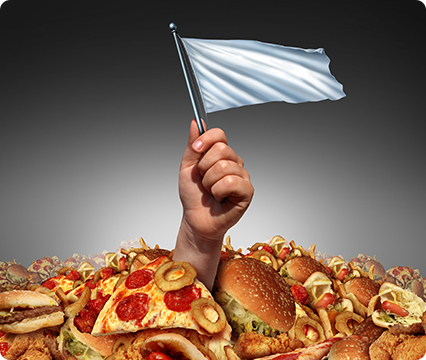Cognitive reappraisal of low-calorie food predicts real-world craving and consumption of high- and low-calorie foods in daily life
This 2018 study explored ways to strengthen or upregulate people’s craving for healthier, low-calorie foods, rather than attempting to curb cravings and consumption of unhealthy, high-calorie products. Cognitive reappraisal (the process by which the meaning of a stimulus is manipulated by changing its emotional impact or in this case appetitive value) and its relationship with eating behaviors were the focus of this study. Fifty-seven individuals of college age were given cognitive reappraisal tasks, looking at pictures of foods and reminding them of the long-term consequences to health of regularly eating these items, in order to regulate their craving responses to high- and low-calorie foods. The subjects’ daily dietary behaviors were then assessed for a week following the laboratory session. Those participants who reported greater up-regulatory success during the reappraisal task also felt stronger cravings for low-calorie foods and ate less high-calorie foods daily. Reader et al. managed to identify a link between increased regulation success and more frequent consumption of craved low-calorie foods. These findings demonstrate the legitimate association between cognitive reappraisal ability and real-world appetitive behaviors. [NPID: craving, cognitive reappraisal, reframing, reappraisal]
Year: 2018
 Navigation
Navigation






